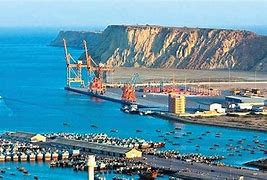Special Assistant to Prime Minister on CPEC Affairs Khalid Mansoor said in a session titled “Pakistan Energy Symposium-Ushering the Future of Energy,” organized by Engro Energy Limited, that Pakistan had one of its greatest energy crises a few years ago. However, after the CPEC finalization, the initial goal was to implement early-harvest projects to alleviate the power shortage, with 17,000 MW of power generating planned. He stated that 5,300 MW of alternative energy was installed in the first phase of CPEC, and that 3500 MW of alternative energy is being considered in the second phase. He claims that the country’s long-term energy security is built on indigenous fuels, using Thar’s scalability as an example.
Pakistan would implement the Competitive Trading Bilateral Contracts Market (CTBCM) to deregulate the power sector from May 1, 2022, enabling buying and selling of power between private generators and consumers.
This was disclosed by National Electric Power Regulatory Authority (NEPRA) Chairman Tauseef H Farooqi on Friday at the ‘Pakistan Energy Symposium – Ushering the Future of Energy’.
“CTBCM is like creating a motorway. We have a successful model of the telecom industry and we are trying to replicate that… We are giving a choice to consumers,” he said.
The aim was to move from “the multi-seller single buyer model to multi-seller multi-buyer model”.
He said this was important to overcome the challenges being faced by investors and businessmen.
“We are liberating the market. You can do the buying and selling of your own electricity. We are trying to deregulate the market,” he added.
Minister of State and Board of Investment (BOI) Chairman Muhammad Azfar Ahsan said Pakistan was an important regional hub. “Energy systems around the world are going through a change – like how we fuel our cars, power our industries, use of energy has increased and human activities have become dependent on it.”
OICCI’s President Ghias Khan said, “We are living in challenging times. Back in 2019, we were looking at two major things which were: the transition to sustainable energy and a just energy system. Over the next two years, we got two more shocks – Covid-19 and the Russia-Ukraine war – which is problematic because Russia is a major exporter of oil and coal, taking out their supply from the system will lead to catastrophic impact.”
He said the deregulation would help become consumer-centric and give customers more choices. “We should not forget the 55 odd million people who still don’t have electricity. We must do whatever we can to provide them with off grid solutions,” he added.
Engro Energy Limited (EEL) CEO Ahsan Zafar Syed said that there was a critical need to look at and reevaluate the policies that impact the energy sector. Over the years we have heard many issues and their solutions, but these were all supply-centric, “today, we want to break this and take a detour,” he said.
Dr Shamshad Akhtar, chairperson of the Pakistan Stock Exchange said that it was important to address a just energy system. “A just system is about the appropriate balance between sustainability, accessibility and affordability – the power sector doesn’t do it for me on any of these scores yet,” she said.
According to the former governor of the State Bank of Pakistan, the government needs to transit from being a single buying body. “This is important because governments keep changing. We need an independent energy provider. We need an integrated view of the energy sector,” she explained.
Prime Minister’s Special Assistant on CPEC Affairs, Khalid Mansoor talked about the importance of coal in the power sector and China’s commitment to CPEC. He shared that it was important to focus on the power sector because several industries depended on it.
“If we have power, we will have industry. It is like the chicken-and-egg situation – what comes before – this is Pakistan’s issue. We have different consumption in the summer and winter…and industries have different usage and needs,” he added.
















